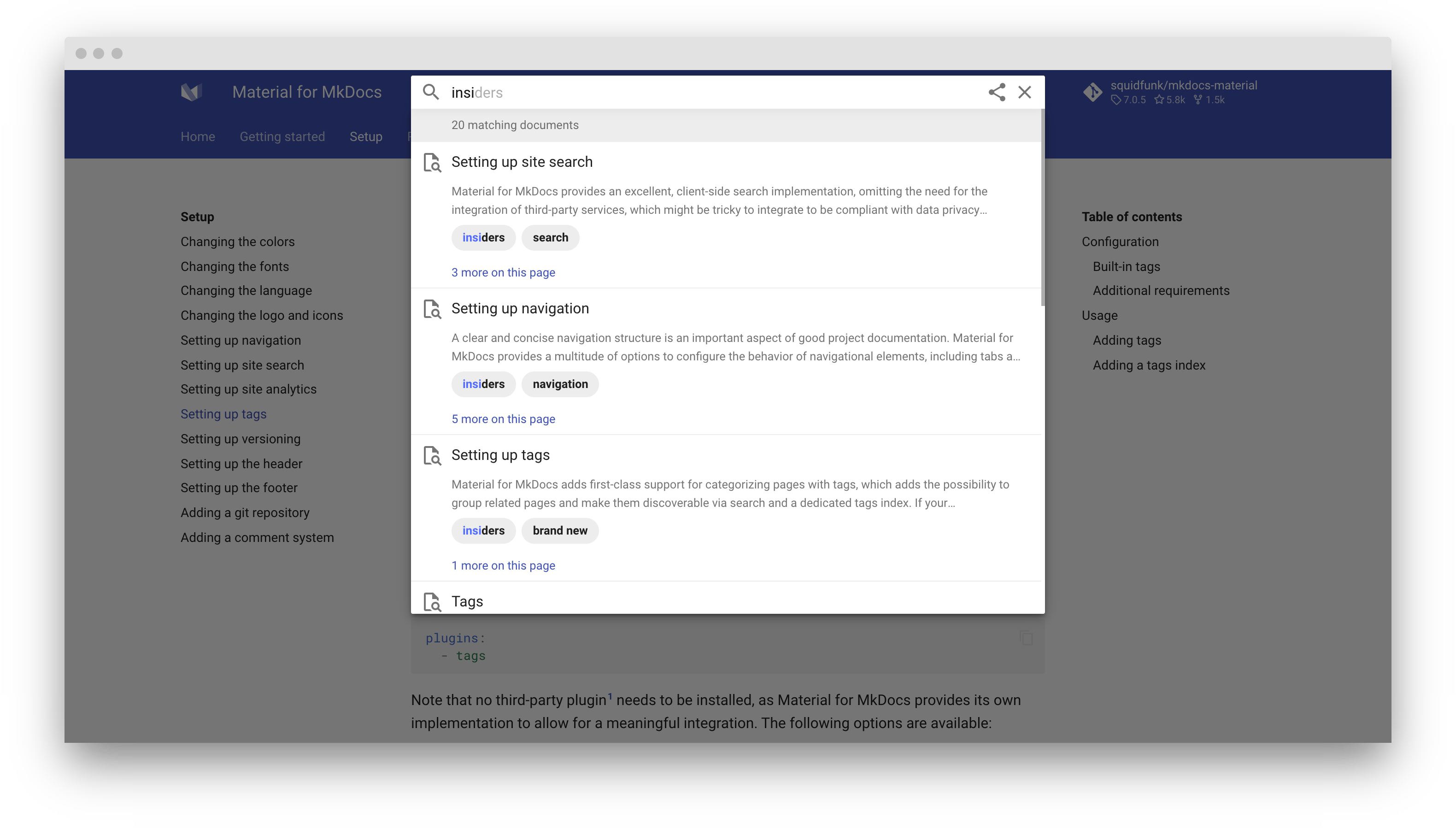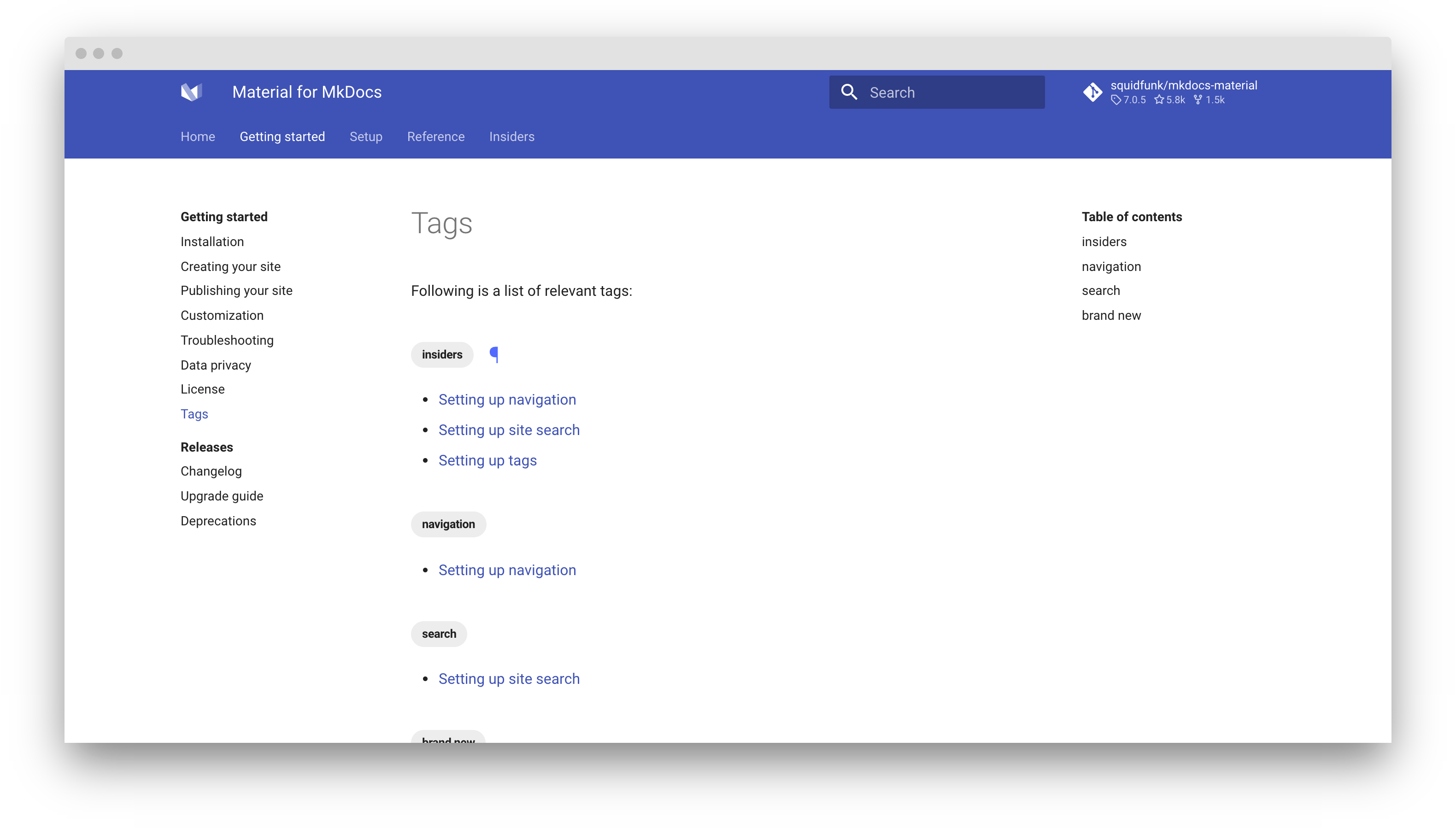Setting up tags¶
Material for MkDocs adds first-class support for categorizing pages with tags, which adds the possibility to group related pages and make them discoverable via search and a dedicated tags index. If your documentation is large, tags can help to discover relevant information faster.
Configuration¶
Built-in tags¶
Insiders · insiders-2.7.0 · Plugin · Experimental
The built-in tags plugin adds the ability to categorize any page with tags as part of the front matter of the page. In order to add support for tags, add the following lines to mkdocs.yml:
The following configuration options are available:
tags_file-
Default: none – This option specifies which file should be used to render the tags index. See the section on adding a tags index for more information. If this option is specified, tags will become clickable, pointing to the corresponding section in the tags index:
The page holding the tags index can be linked anywhere in the
navsection ofmkdocs.yml. Note, however, that this options is not required. If this option is not specified, tags are still rendered and searchable, but without a tags index.
Usage¶
Adding tags¶
When both, the built-in tags plugin and Metadata extension are enabled, tags can be added for a document with custom front matter. Add the following lines at the top of a Markdown file:
The page will now render with those tags above the main headline and within the search preview, which now allows to find pages by tags, as shown in the following screenshots:
Adding a tags index¶
The built-in tags plugin allows to define a file to render a tags index, which can be any page that is part of the nav section. To add a tags index, create a page, e.g. tags.md:
The [TAGS] marker specifies the position of the tags index, i.e. it is replaced with the actual tags index when the page is rendered. You can include arbitrary content before and after the marker:
Hiding the tags¶
While the tags are rendered above the main headline, sometimes, it might be desirable to hide them for a specific page, which can be achieved by using the Metadata extension:


